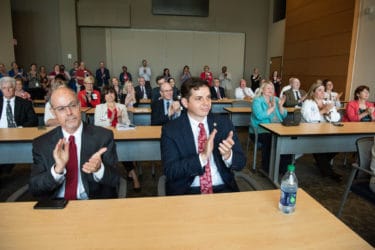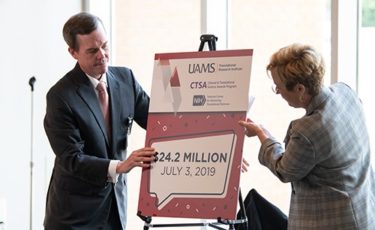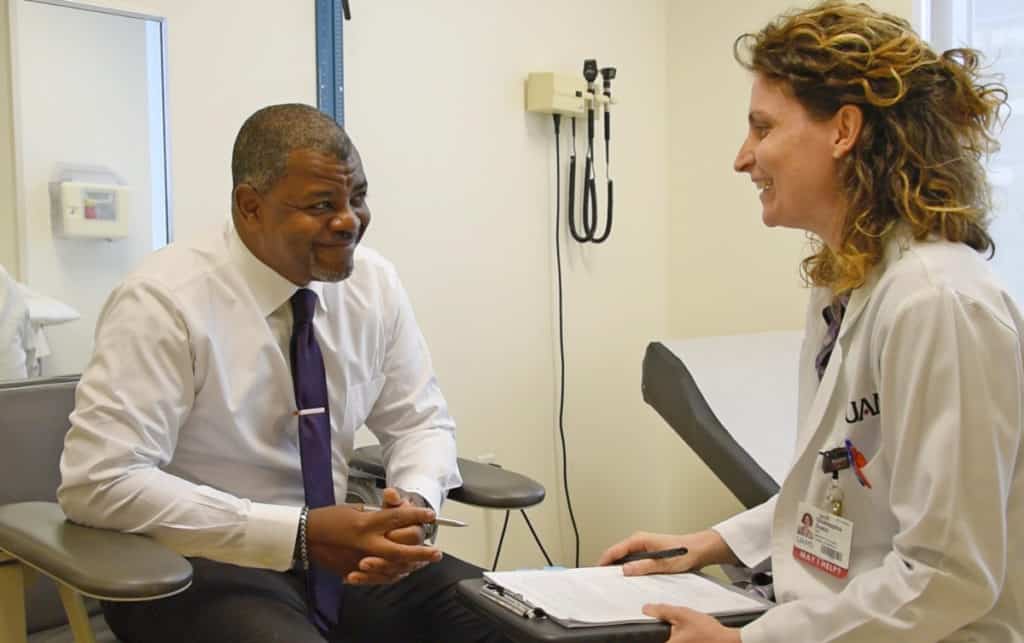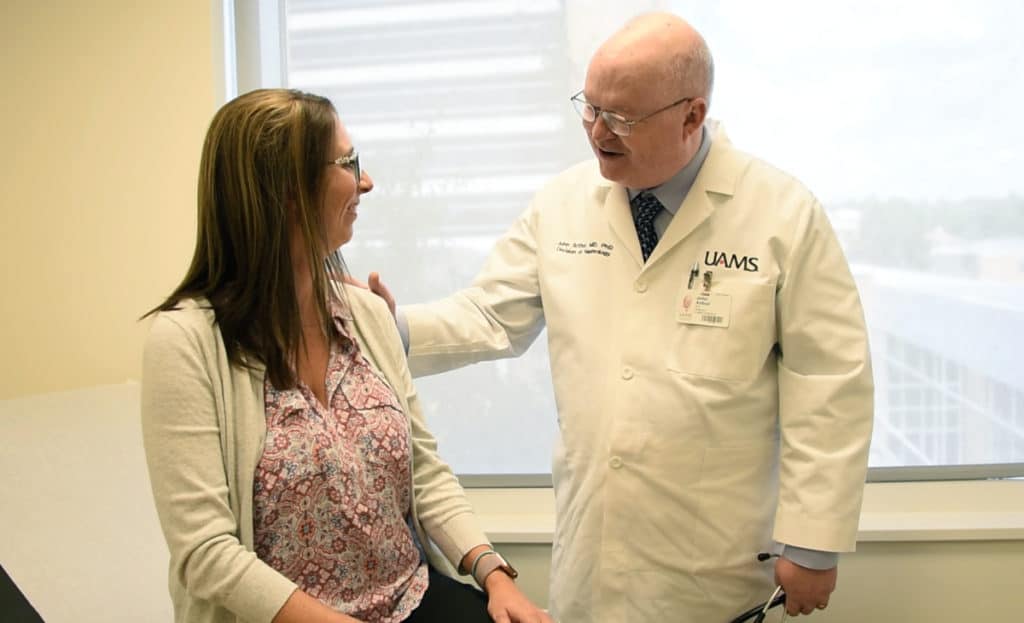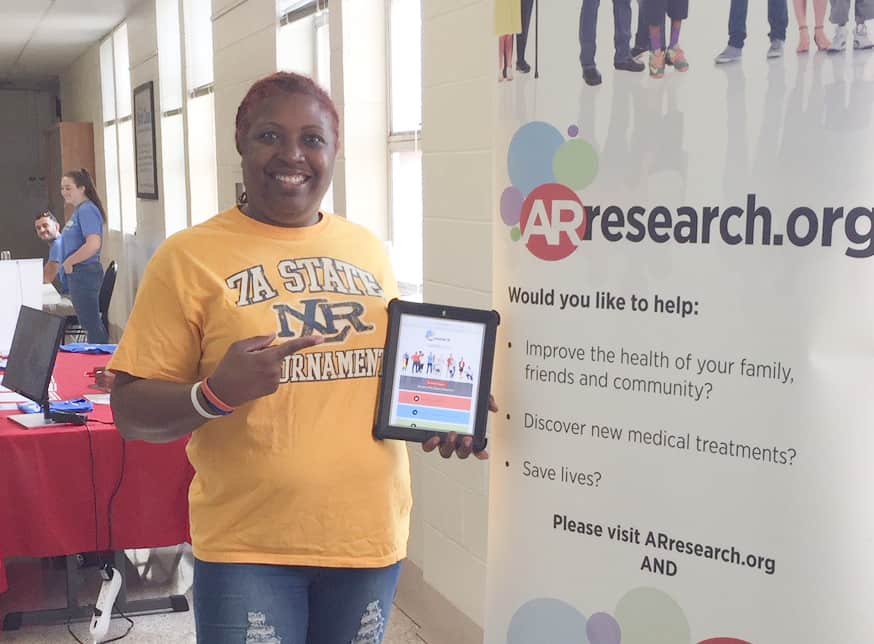The UAMS Translational Research Institute has awarded five early-career UAMS researchers with KL2 Mentored Research Career Development Program Scholar Awards.
The program provides two years of instruction and mentored research training. Scholars receive 75% salary support and up to $25,000 per year for research, tuition, travel expenses and education materials.
The KL2 Scholars were chosen from 11 applicants, and six finalists were interviewed by an independent faculty review committee.
“All of the applications had significant strengths,” said W. Brooks Gentry, M.D., co-director of the institute’s KL2 program. “The awardees are a very strong group with broad representation across disciplines at UAMS.”
He noted that the scholars’ work includes two child health projects, one geriatric project, three clinical trials and one basic science study.
“All of their projects are translational,” Gentry said. Research that is translational seeks to produce more meaningful, applicable results that directly benefit human health. The goal of translational research is to move science discoveries more quickly and efficiently into everyday practice.
Below are the new scholars, their college, department and title of their KL2 project:
- Tara Johnson, M.D.; College of Medicine, Department of Pediatrics, Neurology; “Implementation and Quantification of the General Movement Assessment for Early Detection of Neurodevelopmental Disabilities in Infants”
- Stefanie Kennon-McGill, Ph.D.; College of Public Health, Department of Environmental and Occupational Health; “Fetal Exposure to Cannabinoids: Exposure, Methylation and Neurodevelopmental Effects”
- Pearman Parker, Ph.D., M.P.H., RN; College of Nursing, Department of Nursing Science; “An exploration of the mental health needs of young women with breast cancer and implications for developing patient educational materials”
- Isabelle Racine Miousse, Ph.D.; College of Medicine, Department of Biochemistry; “Decreasing Methionine Intake to Improve Survival in Patients with Metastatic Melanoma”
- Jennifer Vincenzo, Ph.D., M.P.H., PT; College of Health Professions, Department of Physical Therapy; “Development of a Falls Prevention Self-Management Plan to Improve Older Adults Adherence to Prevention Strategies after Community-Based Falls Risk Screenings”
Vincenzo is the first KL2 Scholar from the UAMS Northwest Regional Campus and first from the College of Health Professions.
Including this group, a total of 26 UAMS researchers have received KL2 Scholar Awards since 2009. Those who have completed the program have raised more than $43 million in funding outside UAMS to support their research projects and help jump-start their careers.
The KL2 Program is supported by the Translational Research Institute’s Clinical and Translational Science Award, funded by the National Institutes of Health National Center for Advancing Translational Sciences, grant UL1 TR003107. Funding support for this group of KL2 Scholars also came from the Arkansas Children’s Research Institute (Johnson), and the Arkansas Breast Cancer Research Program (Parker).

